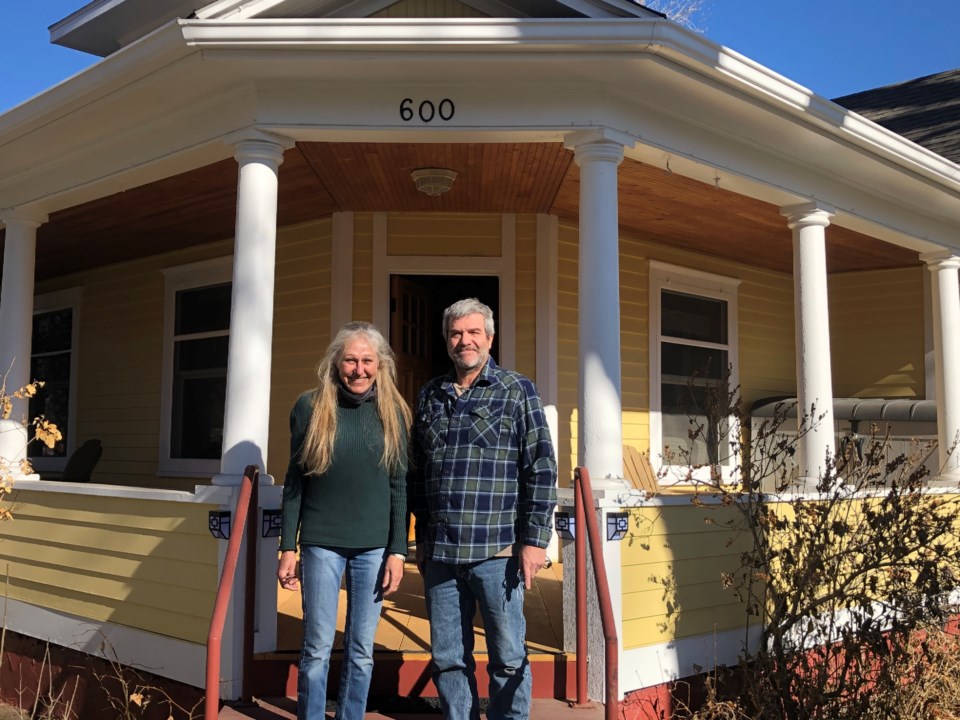In 2019 the Substance Abuse and Mental Health Services Administration found that about 19.3 million people 18 and older in the United States struggled with a substance use disorder.
In Longmont a new nonprofit organization, A Way Forward, is opening its doors at the beginning of the year to help families and individuals struggling with substance abuse.
A Way Forward’s mission is to “eliminate financial barriers to recovery from substance use disorder and provide a trusting, welcoming, diverse and non-judgemental environment for families and individuals seeking help in the St. Vrain Valley,” according to its brochure.
The new nonprofit will be located at 600 Terry St., in a house owned by Debbie Platts, chief financial officer for A Way Forward. For years Platts has used the property to help others, especially those who are invested in recovery.
“I bought this house 12 years ago and from the day I bought it I really wanted to do something recovery related. The pieces never quite came together,” Platts said.
In July, Platts and Michael Rodgers, director of A Way Forward, decided the pandemic was straining too many people who were trying to recover from substance abuse and it was time to use their skills to provide a safe and comfortable place to help with the recovery process, Platts said.
“In late April/early May, the Addiction Policy Forum conducted a survey of 1,079 people with (substance use disorder) nationwide on how they were being impacted by the pandemic. Twenty percent of the respondents reported that their own or a family member’s substance use had increased since the start of the pandemic. according to the National Institute on Drug Abuse.
An analysis of a nationwide sample of 500,000 urine drug test results conducted by Millennium Health also showed steep increases following mid-March for cocaine (up 10%), heroin (up 13%), methamphetamine (up 20%) and non-prescribed fentanyl (up 32%), according to the institute.
In addition to the pandemic causing more people to seek out substances,many people are unable to afford the services they need to beat their addiction.
“More than 20 million people battling addiction require treatment to recover. Some people can quit using alcohol or other drugs with the help of family, friends or support groups. However, people with substance use disorders need professional help to get better,” according to DrugRehab.com.
In a national survey on drug use and health conducted in 2014, 39% of people surveyed said they were not able to afford treatment or did not have insurance. While the Affordable Care Act of 2010 requires insurance to cover addiction treatment services, the coverage for care can vary between providers. Compounding the issue of coverage is the issue of insurance coverage in the pandemic. An estimated 12 million Americans might have lost their health insurance because of higher unemployment rates, according to an August CNBC report.
Knowing that being able to afford addiction treatment even in good times can be a struggle, Platts said she is concerned the pandemic and the harm it has done to the economy has only exacerbated the financial issues associated with recovery.
“People can’t find the help they need and we really want to provide that help and we do not want finances to be a barrier to recovery. We want to open our doors to everyone,” she said.
The nonprofit will offer a sliding fee scale, will accept insurance including Medicaid and will offer other creative solutions to help people get the treatment they need without worrying about a large financial burden.
“We will meet people where they are,” Rodgers said. “Our main goal is that we don’t want to turn anybody away.”
Having worked with Longmont Public Safety’s Co-responder/Crisis Outreach Response and Engagement, or CORE program, A Way Forward identified one of the biggest gaps in service in the city was in helping individuals and families recover from the effects of substance abuse. Using “evidence-based recovery solutions,” the team will open its doors after the new year offering these services in English and Spanish.
Rodgers said he hopes A Way Forward will become a resource for Longmont Public Safety to use alongside the CORE, LEAD, Law Enforcement Assisted Diversion, and Angel Initiative programs.
“I think that any grassroots effort starts small. Our focus is going to be limited in the beginning but we have a vision of expanding to more people, more services and our whole organization. We are all really passionate,” Rodgers said.
To contact A Way Forward call 720-629-5301 or visit the website at https://www.awayforwardlongmont.org/.



